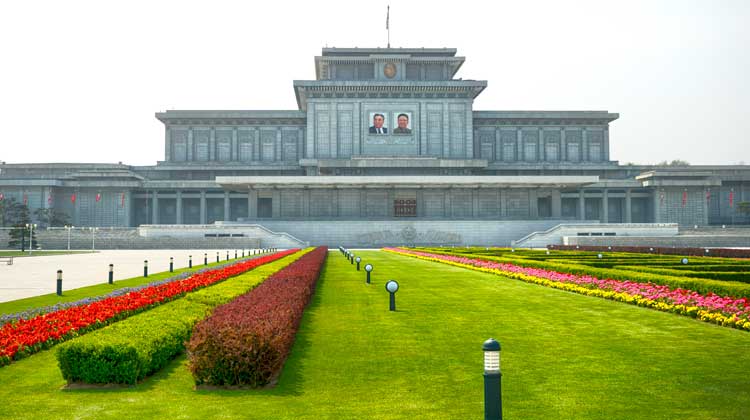A new report from the American Enterprise Institute (AEI) predicts the future turmoil driven by competition between free societies and the authoritarian-corruption nexus will be a “defining threat to freedom in the 21st century.” The report was presented by Clay R. Fuller, a Jeane Kirkpatrick Fellow at AEI, on July 8.

Dismantling the Authoritarian-Corruption Nexus analyzes the security implications of corrupt activities by authoritarian regimes. The report defines the authoritarian-corruption nexus as “the growing convergence of licit and illicit state and non-state actors that facilitates and launders the profits of illegal activity, reinforcing the strength and survival of authoritarian systems of governance everywhere.”
“The nexus is where we need to focus but the problem is that it overlaps into free societies and free markets as well,” Fuller said.
Fuller argued liberty and authoritarianism cannot coexist therefore democracies should aim to consolidate liberty gains where they have already been made and ease future risk where it is possible. If not addressed, the cost will be “immense.”
“All of our enemies are authoritarian regimes … but not all authoritarian regimes are enemies,” Fuller said. “We have a lot of authoritarian regimes that we’re friendly with, and that’s okay, but that’s no reason to simply turn a blind eye to the corruption that exists in those countries that’s feeding this nexus.”
Fuller notes in the report that illicit economic activity has now crossed sovereign borders and works to spread corruption as well as fund certain activities in rule of law-based democracies—such as the United States—at unprecedented levels.
As an example, Fuller noted the immigration crises around the world and how authoritarians trigger mass migration events that drive refugees to seek asylum in free states. These mass migrations strain social services, increase border security costs, and create opportunities for human traffickers.
“Internationally, nexus actors threaten regional stability, as is the case in Iran’s proxy war with Saudi Arabia in Yemen and its provision of weapons to Assad in Syria,” wrote Fuller in the report. “These are not isolated developments; they are all connected and must be strategically treated as such.”
According to the report, autocrats and terrorists abuse the United States’ open markets to prolong their regime. However, Bruce Bueno de Mesquita, the Julius Silver Professor of Politics at New York University and a partner in Selector LLC, said the country often leaves out elected leaders who also sometimes engage in corrupt activities to fulfill their political agenda.
“Mindful of the subtitle of the dictator’s handbook, bad policy is almost always good politics,” De Mesquita said. “Corruption is not an accident, it’s not a consequence of bad people but of bad institutions … and unfortunately, democratic governments exploit the opportunities that corruption provides, not to enrich themselves in the corrupt sense but rather to make deals with autocrats.”
De Mesquita also noted autocrats’ rise to power and how they often change their tune once in place.
“Autocrats have an incentive to act as reformers for the first two years in power as they learn where the money is, because in those first two years, they were more at risk of being overthrown as autocrats than as democrats,” De Mesquita said. “After those first two years, the survival prospects of democrats are terrible, and the survival prospects of petty dictators are excellent.”
De Mesquita explained Americans should exploit that first two-year window in authoritarian countries to lock in reforms, such as more freedom of speech and press.
Daniel Twining, president of the International Republican Institute, said most people believe the solution to combatting the authoritarian-corruption nexus is to increase the defense budget and building up the military, but that it’s only part of the solution.
“Authoritarians are using non-military, non-kinetic instruments to corrupt, subvert and assault open societies,” Twining said. “There is an authoritarian-corruption nexus because where there are lacks of checks and balances, where there is personalistic, one-party control over state resources, you do end up with gross abuses.”
Fuller also suggested as a solution that private sectors should be given a greater role in fighting corruption and that the G-7 should be formalized to only welcome established democracies. The formalized institution would have a charter with a clear ascension clause for political reform and for the expulsion of non-compliant nations.
Evidence from the report shows corruption can be laundered in the West, and often does not stay within the authoritarian country’s borders.
“We have it in our capacity, it is in our wheelhouse to take on this issue of corrupt authoritarian actors who in great power form are working quite actively to subvert, attack, weaken our leadership in the world and our own democratic practice at home,” Twining said.
Sandra Sadek is a staff writer for Homeland411.
© 2019 Homeland411